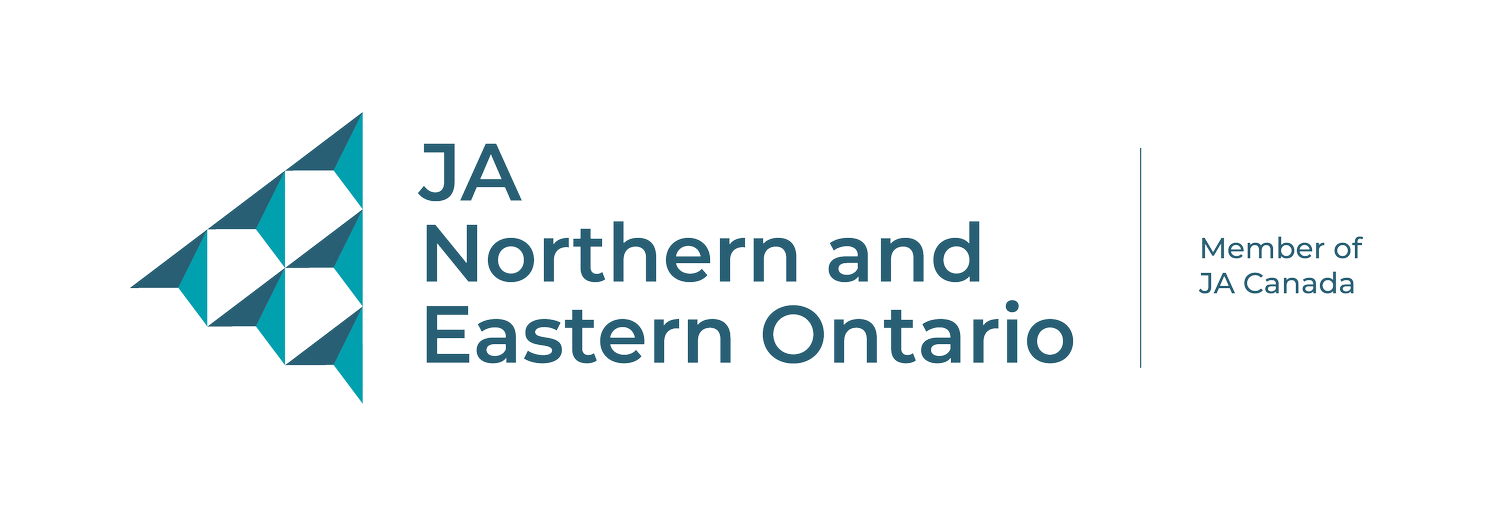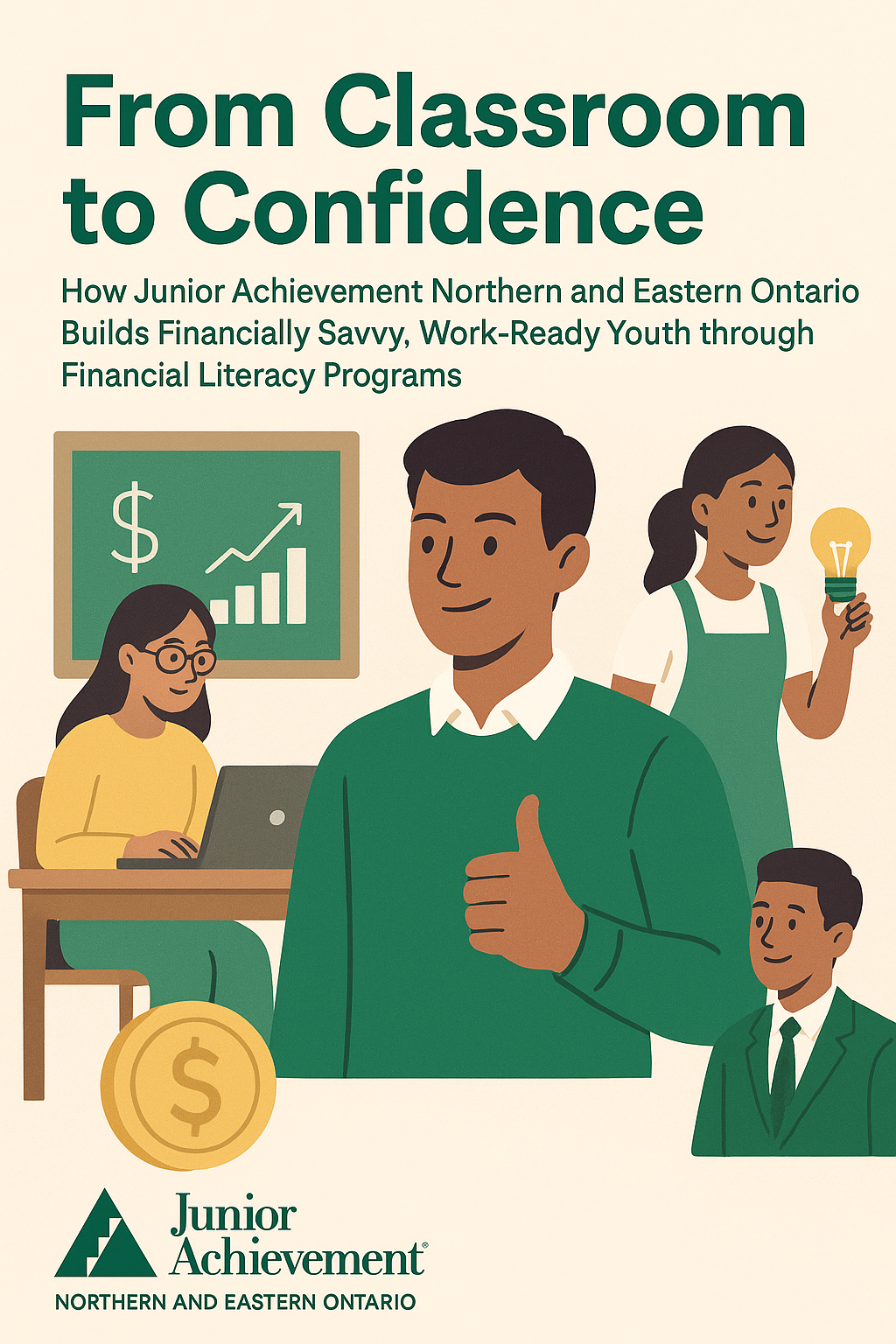From Classroom to Confidence: How Junior Achievement Northern and Eastern Ontario Builds Financially Savvy, Work-Ready Youth through Financial Literacy Programs Ontario
If you ask a Grade 5 student what money means, you’ll hear answers that range from “buying snacks” to “saving for a bike.” By Grade 12, the same question talks about ideas ranging from budgeting for college, investing early, or launching a side hustle. That growth doesn’t happen by accident; it comes from repeated, age-appropriate exposure to real-world skills. At Junior Achievement Northern & Eastern Ontario (JA-NEO), that exposure starts early and compounds over time. Through school-board-approved programs delivered at no cost, JA-NEO reaches thousands of students each year with hands-on learning programs for students that stick. JA-NEO
Three pillars, one outcome: real-world readiness
JA-NEO’s programming is organised around three pillars: Financial Literacy, Work Readiness, and Entrepreneurship. Each pillar supports grade-specific experiences that allow young people to transition smoothly into post-secondary life and work.
For instance, school programs financial literacy falling under Financial Literacy pillar, such as More Than Money (Grades 3 to 6), Dollars with Sense (Grades 7 to 9), Personal Finance (Grades 9 to 12), and Investment Strategies (Grades 8 to 12) help students move from understanding needs vs. wants to building budgets, managing credit, and exploring investing basics. JA-NEO
The Work Readiness pillar blends career exploration with practical, employability-skill building. Programs like Our Community (Grades 3–6), Economics for Success (Grades 8–10), World of Choices (Grade 10 & Co-op), Success Skills, and JA Career Tours connect students with mentors and workplaces, offering hands-on experience and showing the many paths to a meaningful career. JA-NEO
Finally, Entrepreneurship programs, Our Business World (Grades 5–6), JA Days (Grades 7–8), Be Entrepreneurial, and the flagship Company Program (Grades 9–12), let students do business, not just study it. They ideate, validate, design, market, and even wind down a student-run venture, supported by volunteers from the local business community. JA-NEO
Why early, repeated exposure matters for Financial Literacy for youth
Financial habits form early. Introducing concepts like opportunity cost, saving, and budgeting in Grades 3–6 normalises money conversations at home and in class. By the time students reach high school, terms like “compound interest,” “credit utilisation,” or “ETF” feel less intimidating. Meanwhile, work-readiness experiences expose learners to essential skills like communication, collaboration, problem solving, and digital fluency, long before first jobs or co-ops. Layer entrepreneurship on top, and you’ve got a generation that is not only financially literate but also opportunity-literate, as they can spot problems worth solving and build solutions along the way.
JA-NEO’s Delivery Model: How to teach kids about Money
JA-NEO’s delivery model supercharges this compounding effect as Youth career exploration programs are facilitated by educators and volunteers from business, government, and community partners. Volunteers don’t just tell; they show with stories, work readiness skills, tools, and career experiences that students can picture themselves in. That lived relevance is a proven driver of engagement and memory. JA-NEO
Impact Analysis, close to home
JA-NEO’s footprint stretches across a wide region: Cornwall, Brockville, Pembroke, Financial Literacy Programs Kingston, Peterborough, Muskoka, Collingwood, Midland, North Bay, Sudbury, JA-NEO Sault Ste. Marie and Thunder Bay, ensuring access for classrooms in both mid-sized cities and smaller communities. The reach is powered by a network of education, government, and industry partners and a dedicated volunteer base that believes in giving back to the community. Volunteer opportunities North Bay JA-NEO
For educators, that means sharing experiences and adding value. For investors, it means volunteer opportunities for business professionals; your support converts directly into more students getting equipped with essential life skills. For volunteers, it’s a chance to pay forward your experience and watch a lightbulb go on in real time.
“Future-ready” isn’t a buzzword when you can watch a Grade 10 student build a budget, ask a mentor smart career questions, and then prototype a product with teammates, all in one program. JA-NEO makes financial education for kids possible by bringing the community into the classroom and the classroom into the community. The result is simple and powerful: Youth entrepreneurship programs empower young people who are financially confident, work-ready, and brave enough to build something new.


